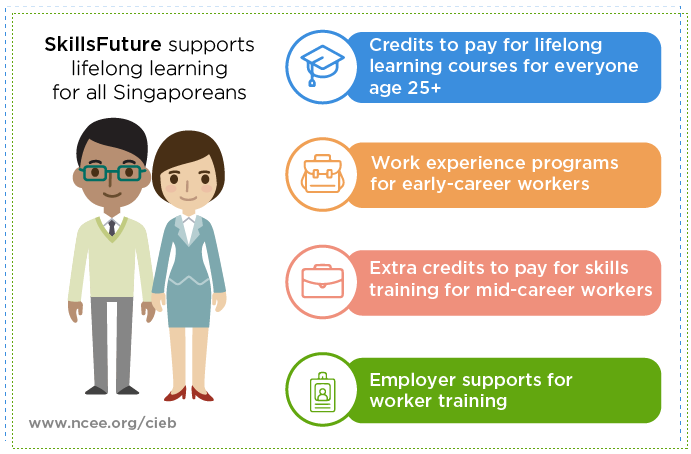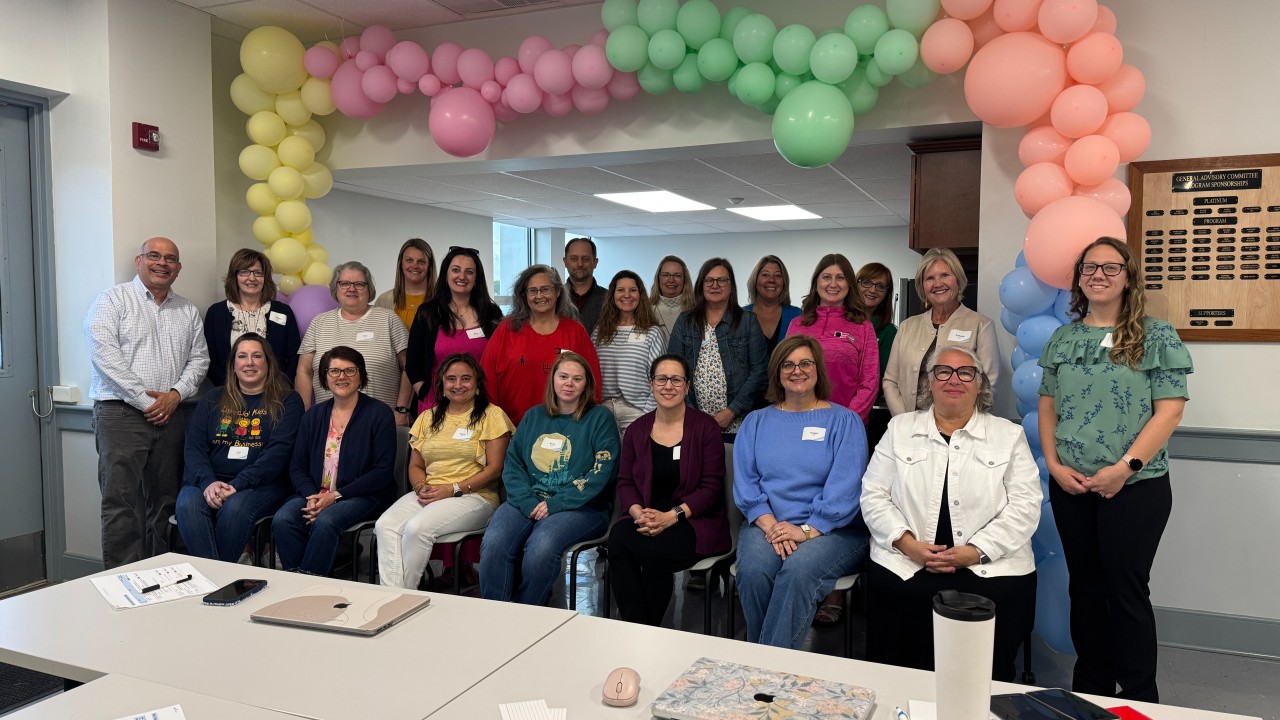
By Gretchen Cheney
Last week the Biden Administration proposed making two years of community college free to students, extending public education by two years. Many top-performing countries have gone further than this in recent years, aiming to build lifelong learning systems that support continuous learning and upskilling through all phases of life.
For example, Singapore’s SkillsFuture initiative was launched in 2014 to encourage adults to direct their own learning and businesses to provide ongoing education and training opportunities to help their employees stay current with the ever-changing marketplace. A centerpiece of the work is the provision of SkillsFuture credits to all residents aged 25 and above which can be used to pay for thousands of pre-approved learning and skills development courses. There is no expectation that learning be related to a particular job or career path; citizens can explore any area of interest. The first S$500 ($US374) credits were provided in 2015 with an additional S$500 added to accounts at the end of 2020.
Since SkillsFuture was first unveiled, Singapore has continued to add additional elements to build out its lifelong learning system, including attending to the needs of mid-career workers, expanding availability of work-study programs, and providing support for small and medium sized enterprises:
- Mid-career workers: In 2020, workers ages 40-60 received an additional S$500 credits to be used for reskilling and career transition programs to ensure that they retain their employability. To help these workers transition to new industry areas, they are also eligible to participate in “company attachments” where they can gain meaningful industry-relevant experience while earning a training allowance.
- Work-study programs: Aimed at helping recent graduates of technical and applied postsecondary programs transition into employment, these programs provide on-the-job training and school-based learning to deepen participants’ skills in their chosen fields. To entice employers to hire trainees, the government provides wage subsidies for up to one year.
- Small and medium-sized enterprises (SMEs): Smaller firms often lack the capacity to provide workplace training. The government has worked to organize groups of SMEs with similar training goals to certify group training instructors and organize shared learning experiences.
Singapore believes these investments in education and training services aligned to the needs of the economy have helped it weather the pandemic. It was able to adjust and add learning offerings in real-time and target industries that were most impacted by the economic downturn. For example, Singapore provided temporary wage supports in hard-hit sectors like the airlines and tourism and gave employees in those sectors access to subsidized training courses so they could build in-demand skills such as data analytics and digital commerce. Those workers are now primed to be even more effective in their jobs post-pandemic.
Read more about Career and Technical Training in Singapore on NCEE’s country profile.




